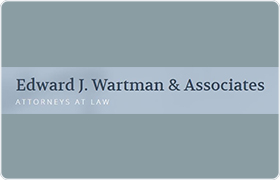Saint John Bankruptcy & Debt Lawyer, Indiana
Sponsored Law Firm
-
 x
x

Click For More Info:
-
Edward J. Wartman & Associates
516 East 86th Avenue Merrillville, IN 46410» view mapBankruptcy & Debt Law Highest Quality of Legal Services
At Edward J. Wartman & Associates Our experience runs deep and our successes are numerous, yet our motivation is simple.
219-791-1520
Edward John Wartman
✓ VERIFIEDAccident & Injury, Bankruptcy & Debt, Criminal, Divorce & Family Law, Traffic
Ed was born and raised in Calumet City, Illinois graduating from Quigley South High School in Chicago in 1988. He graduated from Northwestern Univers... (more)
Nicole A. Bennett
Banking & Finance, Corporate, Collection, Constitutional Law
Status: In Good Standing
Adam D. Decker
Business Successions, Collection, Commercial Bankruptcy, Bankruptcy & Debt
Status: In Good Standing
FREE CONSULTATION
CONTACTFREE CONSULTATION
CONTACTIrene Constan Gasparis
Traffic, Wills & Probate, Divorce & Family Law, Criminal, Bankruptcy & Debt
Status: In Good Standing
Christopher Schmidgall
Bankruptcy & Debt, Criminal, Traffic, DUI-DWI
FREE CONSULTATION
CONTACTFREE CONSULTATION
CONTACT Edward Wartman Merrillville, IN
Edward Wartman Merrillville, IN

